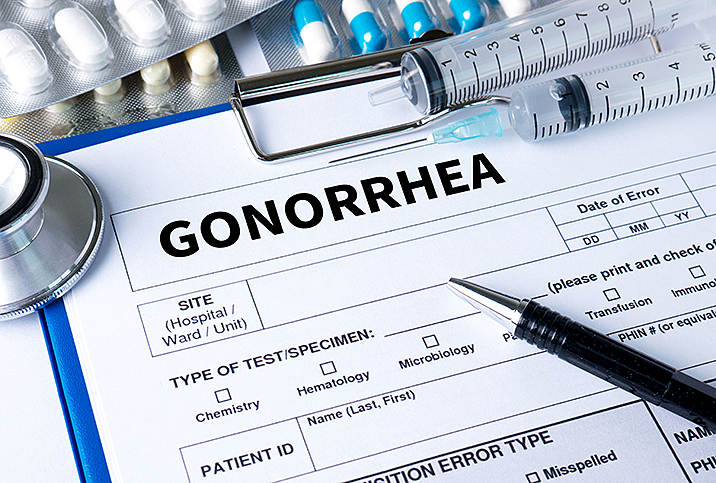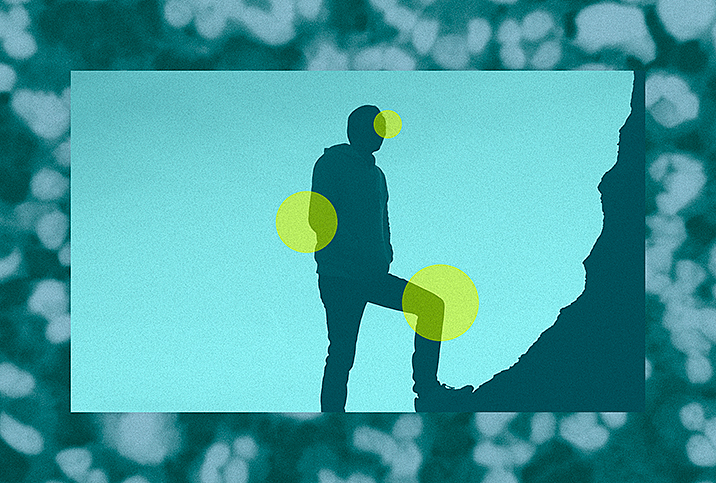What Is Super Gonorrhea?

As humans develop new ways to fight old diseases, nature has a way of adapting and evolving methods for fighting back. A perfect example is gonorrhea.
This sexually transmitted disease (STD) was once extremely common until a cure was found. But nature found a way to circumvent that cure, creating a new threat in the form of what's been called super gonorrhea.
History and symptoms
Gonorrhea’s presence among human populations dates all the way back to the 13th century. It was named for the discovery of the gonococcus bacteria in the late 19th century, but up until then, it was mostly known by euphemisms such as "the Clap," which some say is derived from the French word "clapier," meaning brothel.
When gonorrhea symptoms show up, they usually manifest in the genital region. In addition to urethra swelling and throbbing pain in the penis or testicles, symptoms in men tend to include an increased frequency of urination along with a burning sensation during it. Women may experience similar symptoms, along with heavier and unpredictable menstruation, a sore throat or pain in the lower abdomen during sex.
Both men and women with gonorrhea may experience unpleasant discharge or pus-like secretions from the penis or vagina.
Part of gonorrhea’s problematic nature, especially before the existence of antibiotics or other modern health implements, is that those who contract the illness do not always manifest observable symptoms. For this reason, it is incredibly easy to unknowingly and unintentionally pass the STD to others.
Throughout history, the asymptomatic nature of gonorrhea has presented an enormous challenge to the medical world as doctors were left to struggle to keep up with outbreaks that affected many people. In the early 1900s, a vaccine was introduced, which utilized dead gonococci bacteria. This, along with the introduction of penicillin about 40 years later, helped to address the problem more effectively.
Unfortunately, the variant super gonorrhea—or to use its scientific name, antibiotic-resistant gonorrhea (ARG)—introduces new challenges and complications.
The rise of ARG
Penicillin was first invented by a Scottish scientist, Alexander Fleming, in 1928, and it was recognized as a tool to combat bacterial infection. But it wasn't until 12 years later that researchers, led by Howard Florey and Ernst Boris Chain, isolated purified penicillin. In 1945, all three scientists shared a Nobel prize for their work producing a cure for streptococcal meningitis, a disease that had resulted in a fatality in 90 percent of cases.
Penicillin was used to cure gonorrhea, and it did just that. But its extensive use had, by the 1980s, resulted in gonorrhea starting to resist the effects of penicillin as a form of treatment.
Doctors learned to rotate through a number of different antibiotic treatments on a case-by-case basis. However, strains of gonorrhea that are resistant to these treatments are appearing more frequently. This, combined with gonorrhea’s often asymptomatic nature, had led to a sharp increase in cases since 2014.
While rarely fatal, if left untreated, gonorrhea's long-term effects can be damaging. Unchecked gonorrhea can cause infertility and various pregnancy complications, such as premature birth. It can even be passed from mother to child. The symptoms are painful in specific ways and come with societal and evolutionary complications that could impact humanity at large and put a tremendous burden on global healthcare systems.
Is it curable?
Being antibiotic-resistant does not necessarily mean that this new variant is incurable. Super gonorrhea outmaneuvers existing treatment options, but the new strains are actively being addressed by medical professionals and scientific researchers deeply committed to the development of effective treatment options using new antibiotics and innovative medical tools.
It’s believed a rise in the use of antibiotic prescriptions contributed to the mutation of gonorrhea into antibiotic-resistant forms, and the current shortcomings of these treatments place even greater emphasis on the importance of prevention.
You may like to know that some of the developers behind recent COVID-19 vaccinations have begun work on a vaccine for gonorrhea.
Getting tested
While gonorrhea and other sexually transmitted diseases can avoid detection thanks to a lack of visible symptoms, the transmission of these illnesses still poses dangerous consequences. If you’re sexually active, be sure to get regular, full-panel screenings for STDs and sexually transmitted infections (STIs). Talk to your partners about your sexual health and history and ask them to do the same so that you're all aware of the risk level before you have sex.
Uncomfortable as these conversations may be, it’s important we destigmatize talking about sexual health. STDs and STIs are serious but should be relatively common concerns for most adults.
Everyone has a right to initiate and expect a transparent conversation about sexual health with their partners. Having open conversations about sexual health can make a world of difference in maintaining your own.

















